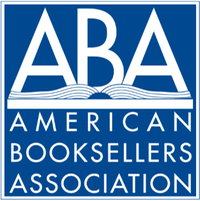 During the ABA Community Forum held yesterday afternoon, Elizabeth Jordan of Nowhere Bookshop in San Antonio, Tex., brought up Texas House Bill 900, which requires book vendors to review and define books sold to public schools as being sexually explicit or sexually relevant, among other stipulations, and was passed by the Texas Senate a few days ago.
During the ABA Community Forum held yesterday afternoon, Elizabeth Jordan of Nowhere Bookshop in San Antonio, Tex., brought up Texas House Bill 900, which requires book vendors to review and define books sold to public schools as being sexually explicit or sexually relevant, among other stipulations, and was passed by the Texas Senate a few days ago.
Governor Greg Abbott is expected to sign the bill into law soon, with Jordan remarking it will make it all but "impossible to sell books to schools" in Texas. And though Texas is the first state to do this, she noted, it will not be the last; Jordan asked what the ABA and ABFE are doing with regard to the bill and what guidance and support they can provide to booksellers. Jordan also pointed out this won't exclusively affect indies but also companies like Barnes & Noble and Scholastic, and she suggested that indie booksellers might benefit from working with some "strange bedfellows."
ABA CEO Allison Hill reported that the association plans to hire another employee to assist with this issue and to help formulate strategy going forward, and the ABA has had conversations with B&N about book bans and worked with them in the Virginia Beach, Va., case. They've also supported ABFE and for this issue "everyone is coming to the table."
ABFE director David Grogan said the immediate next step is to meet with the coalitions ABFE has been working with in Texas to "see what we can come up with," and he agreed that there are "going to be other states" that pass similar bills. He also commended Texas booksellers, who were "amazing" in their advocacy efforts against the bill, and he regretted that it "unfortunately wasn't enough."
Lisa Swayze of Buffalo Street Books in Ithaca, N.Y., also wondered what booksellers in states not facing this issue can do to help booksellers in states like Texas.
Brein Lopez of Children's Book World in Los Angeles, Calif., noted that indies across the country are in a position to support and find people within their respective communities who want to take leadership positions against the banning of books and for the right to read. Stores have the opportunity to "find those people and work together," and Lopez urged that indies "need to do it now."
The ABA's recent meetings with publishers was another significant topic of discussion. On the agenda this year was school business, with Cynthia Compton of 4 Kids Books & Toys and MacArthur Books, Carmel, Ind., reporting that the need for distinct school policies and streamlined B2B sales was made clear, and how, in the current way of doing things, far too much work is getting "pushed onto booksellers."
Discussions also included the need for better terms, with Hill noting that within the larger terms conversation, the ABA emphasized to publishers the need to simplify and streamline things, as "efficiencies in the business" are needed now more than ever. Other topics involved diversity in the industry and the wave of book banning, and Hill said it was an encouraging sign that a number of publishers brought up topics from the previous year's meetings. She also relayed that in "every meeting" she heard from publishers that they need better data, and Hill encouraged booksellers to report their sales to Bookscan and Above the Treeline. With better reporting, indies can leverage that data and have a way to "move the needle."
John Evans of DIESEL, with bookstores in Brentwood and Del Mar, Calif., mentioned that with both Amazon and B&N cutting back on orders and publishers in turn cutting back on employees, services provided, and books published, this has created a "turbulent time" for booksellers; he wondered if any publishers had shared where they thought the industry was going.
In her three years of meeting with publishers as head of the ABA, Hill said, this year was the "most dire" she's seen them. While the indie channel is growing in market share, it is still a "small sliver overall," and when national accounts like B&N and Amazon make significant changes, it creates a "ripple effect that impacts us all." There is no "magic bullet" that will fix the problem, she continued, and the next couple of years will likely be "challenging," but better reporting from indies could help significantly with the forecasting difficulties that publishers are having.
Danny Caine of the Raven Book Store in Lawrence, Kan., said this year marked his first time taking part in publisher meetings, and it struck him that although "the news was often bad," all the publishers he saw "remained committed to indie bookstores being part of the solution." He was frankly and pleasantly surprised by "how credible their support for us seemed." --Alex Mutter

